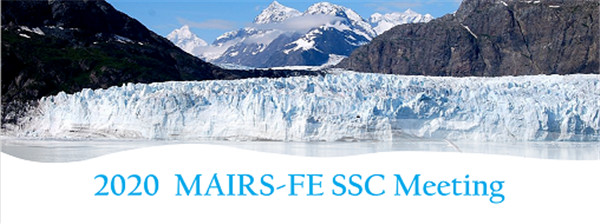Peking University, January 5, 2021: The Future Earth Global Research Project – Monsoon Asia Integrated Research for Sustainability-Future Earth (MAIRS-FE) held an annual Scientific Steering Committee Meeting on December 17, 2020 in Beijing, to share achievements made in the past year and to update information on collaboration and research. The meeting was co-hosted by Chinese National Committee for Future Earth, in conjunction with the Thematic Workshop on Air-Climate-Health Integrated Study supported by Energy Foundation China. The outcome of this event will be foundations and directions for the planning and development of MAIRS in 2021.

The meeting attracted around 30 global participants who are working on the research topics related with climate change, air quality, health, water and energy resources as well as land use. Above 14 organizations in the region were involved, including universities, research institutions, funding organizations and global research projects.
The organizers and participating institutions presented the progress and achievements made in 2019 and 2020 and the future plans. Professor Zhu Tong from the College of Environmental Sciences and Engineering of Peking University is the chair of the MAIRS-FE Science Steering Committee. He summarized the progress in terms of interdisciplinary research programs, flagship activities and public communications. In addition, he regretfully mentioned some activities have been suspended due to COVID-19. Although the challenges of international collaboration activities remain in the context of pandemic, MAIRS-FE will keep trying to facilitate the implementation in the future.
Professor Zhu also chaired the discussion on air-climate-health related topics, highlighting the importance of integrated research under the new goals and ambitions of tackling climate change, and said that the MAIRS-FE working group will focus on related work in the future, including organization of a series of workshops and working meetings to explore the establishment of a comprehensive and systematic assessment framework targeting to maximize the health benefits, and provide scientific support and policy suggestions for decision-making.
In the discussion on Food-Land-Energy-Water led by Professor Qi Jiaguo from Department of Geography, Environment, and Spatial Sciences of Michigan State University, experts presented their research activities and outcomes on continued engagements with regional partners in Mekong River Basin. They took a case study in Thailand for illustration, including research projects that focused on the preservation and utilization of floodplain forest of the people in Srisongkham District, Nakhon Phanom Province, and how flooding, which was caused by the climate change, posed a threat to food production and agricultural communities in Asia.

In the past year, the MAIRS-FE modeling working group has actively promoted the research on climate change downscaling simulations and has co-organized MAIRS-CORDEX joint activities, including side event of the 2019 International Regional Climate Conference as well as joint online meetings. Professor Fredolin Tangang from Universiti Kebangsaan Malaysia put forward the influence and importance of regional climate modeling communities, climate change vulnerability, robust policy and actions towards climate resilience and minimizing the impact of climate change, and Impact and Adaptation (VIA) Communities. Professor Wang Shuyu from the School of Atmospheric Sciences of Nanjing University pointed out that climate change simulation needs to add value through applications and transferring to mitigation assessment.

Furthermore, representatives from different international research institutions also gave speeches, such as Dr. Giles Sioen, co-lead for Research and Innovation from the Future Earth Global Secretariat, Dr. Ria Lambino, science officer from the Regional Center for Future Earth in Asia, Tian Qing, secretary of FE CNC (Chinese National Committee), as well as experts from Global Research Projects (GRPs), including Professor Zheng Mei of Peking University representing IGAC (International Global Atmospheric Chemistry) SSC, Professor Wang Xuemei of Jinan University representing iLEAPS (Integrated Land Ecosystem-Atmosphere Processes Study) SSC, and Dr. Li Li of Xiamen University representing SOLAS (Surface Ocean Lower Atmosphere Study) SSC. These participants introduced their organizations/GRPs and showed their pleasure and appreciation for being invited to promote exchanges and cooperation between multiple institutions and multiple global research projects, and emphasized the importance of constantly building networks in Asia, such as strengthening linkages through funded projects and joint meetings. This will make contribution to the development of regional environmental research and cooperation in the future.
Source: College of Environmental Sciences and Engineering, Peking University